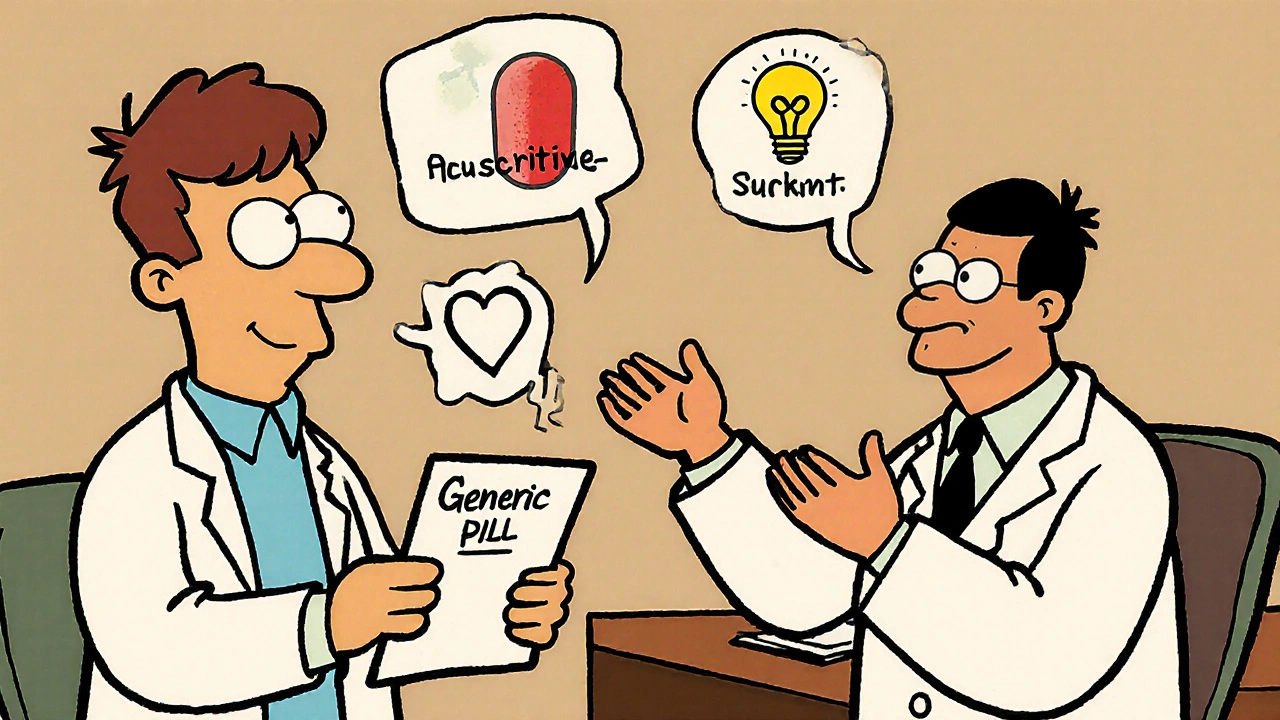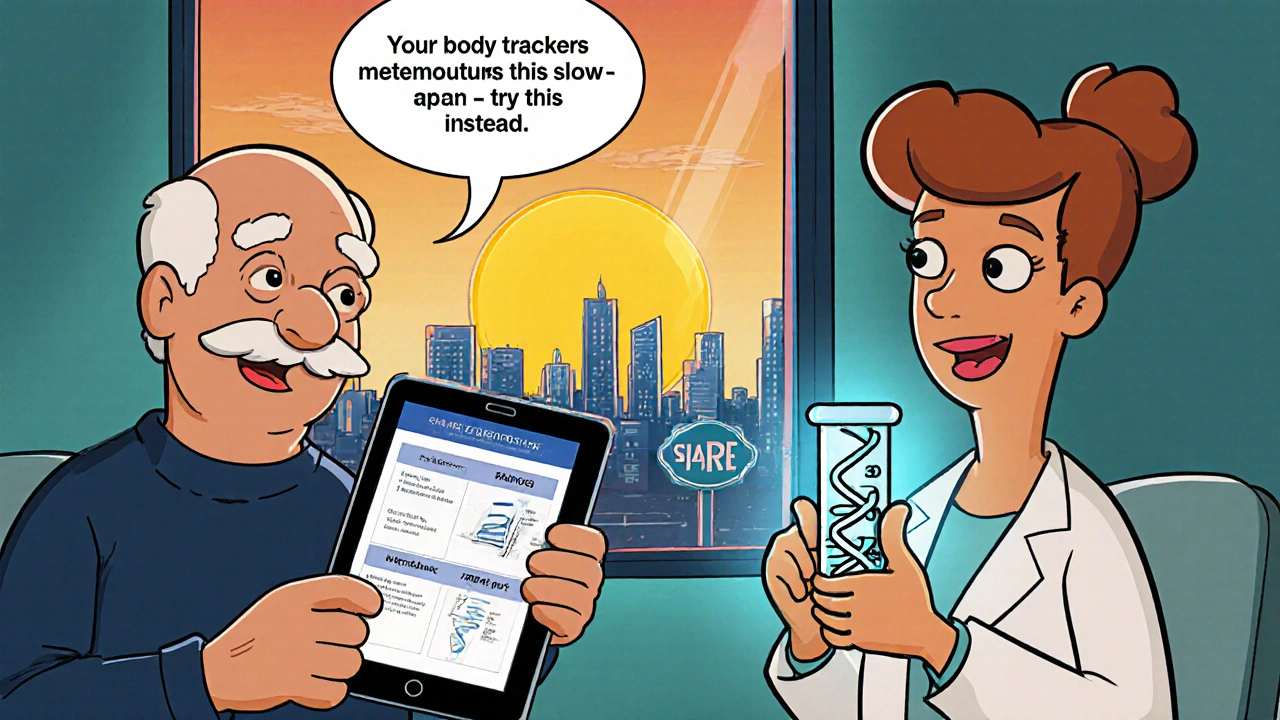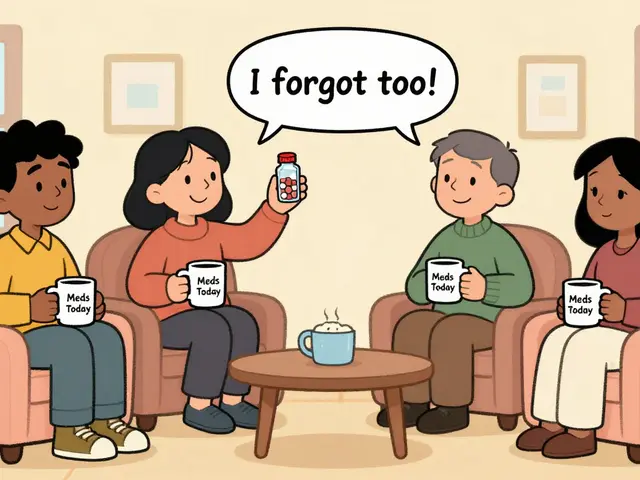
When you’re handed a prescription, do you feel like you’re making a decision-or just accepting one? For too long, medicine has treated medication selection as a doctor’s call alone. But today, more patients are asking: Who really gets to choose what goes into my body? The answer isn’t just legal-it’s personal, emotional, and deeply human.
It’s Not Just About Consent-It’s About Control
The idea that patients should have a say in their medications isn’t new. It started after World War II, when the Nuremberg Trials exposed horrific experiments done without consent. That led to the idea that no one should be forced to undergo medical treatment-even if it’s meant to help. By 1972, a U.S. court ruled doctors must explain all material risks before a patient agrees to treatment. That’s when informed consent became law. But consent is just the starting point. True autonomy means you’re not just saying yes or no. It means you’re part of the conversation. You get to ask: What are the alternatives? What do the side effects actually feel like? How will this affect my job, my sleep, my sex life? These aren’t minor details. They’re the reason people stick with-or quit-medications.What Makes Medication Autonomy Different
Unlike surgery, where you say yes to one procedure and move on, medications are ongoing. You take them every day, for months or years. And each dose is a tiny decision: Do I feel well enough to take this today? Is the nausea worth it? Can I afford this? That’s why medication autonomy is more complex than other types of medical choices. A 2023 WHO report found half of people with chronic conditions stop taking their meds within a year-even when they initially agreed to them. Why? Because the decision wasn’t truly theirs. They were told what to take, not helped to choose. And it’s not just about side effects. Cost plays a huge role. In 2023, 32% of Medicare Part D users changed or skipped doses because they couldn’t afford their prescriptions. That’s not noncompliance-that’s survival. When a doctor prescribes a $6,000-a-month biologic without discussing a $3,500 biosimilar, they’re not just skipping a cost conversation-they’re taking away choice.How It Works in Practice
Real medication autonomy isn’t a buzzword. It’s a process. It requires three things:- Capacity: Can you understand the options? This isn’t about IQ-it’s about whether you can weigh risks, remember the info, and say what you want. Tools like the MacCAT-T are used to check this in complex cases.
- Information: You need real data-not vague promises. For example, if you’re being offered an SSRI for depression, you should know it works for 50-60% of people, but 25-30% get sexual side effects. That’s not scare tactics. That’s honesty.
- Values: What matters to you? Some people will take a drug with mild nausea to avoid weight gain. Others won’t. Some want the cheapest option. Some want the newest. Neither is wrong.
Tools That Actually Help
Some clinics use decision aids-simple guides that lay out options side by side. The Mayo Clinic offers them for diabetes, depression, and high blood pressure. They show: Option A: This drug reduces your risk of stroke by 20%, but causes dizziness in 1 in 4 people. Option B: This one has less dizziness, but costs $150 more a month. These aren’t just pamphlets. Studies show when patients use them, they feel less confused and more confident. One 2023 study in the Annals of Internal Medicine found that 82% of patients who helped choose their meds stayed on them after six months. For those who didn’t, it was only 65%. Pharmacists are stepping in too. Medication Therapy Management (MTM) programs-where pharmacists sit down with patients to review all their meds-boost autonomy by 31%, according to CMS data. These aren’t just refill reminders. They’re conversations about what’s working, what’s not, and what else might fit better.Where It Falls Short
The system still has big gaps. In rural areas, only 42% of clinics consistently use shared decision-making. In emergency rooms, just 43% of doctors routinely discuss medication options. Why? Time. Most visits are 15 minutes. Talking through trade-offs takes longer. There’s also bias. A 2023 survey found White patients were 25% more likely to report being involved in medication decisions than Black or Hispanic patients. Some doctors assume low-income patients won’t stick with expensive meds-and so they don’t even offer them. That’s not autonomy. That’s paternalism in a white coat. And then there’s advertising. Direct-to-consumer drug ads influence 28% of patient requests, according to the FDA. A patient walks in asking for a brand-name drug they saw on TV. The doctor may not have time to explain why a cheaper, equally effective alternative exists. So they prescribe it. And autonomy? Lost in the commercial noise.Real Stories, Real Choices
One cancer patient refused opioids for pain because of her religious beliefs. Her doctor didn’t push. Instead, they built a plan with frequent non-opioid doses, acupuncture, and heat therapy. She stayed comfortable. And she stayed in control. Another patient, managing diabetes, was prescribed Ozempic but felt sick from the nausea. When she asked about alternatives, her doctor said, “It’s the best option.” She switched providers. Her new doctor offered three other drugs, explained how each affected her weight and appetite, and helped her pick one that fit her life. These aren’t rare cases. They’re what autonomy looks like when it works.
The Future Is Personalized
The next big shift? Genetic testing. In 2020, a full pharmacogenomic panel cost $1,200. Today, it’s $249. That means doctors can soon tell if your body metabolizes a drug slowly-or too fast. You might be told: “This antidepressant won’t work for you because of your genes.” Or: “You’re at high risk for severe side effects from this painkiller.” That’s not taking choice away. It’s giving you better information to make it. Digital tools are coming too. Apps that help you track side effects, compare costs, and set reminders are growing fast. But there’s a catch: 37% of adults over 65 say they struggle to use them. If we don’t design for older, less tech-savvy users, we risk leaving them behind.What You Can Do
You don’t need to be a medical expert to claim your right to choose. Here’s how to start:- Ask: “What are my options besides this one?”
- Ask: “What do the side effects actually feel like-not just what’s on the label?”
- Ask: “Is there a cheaper version? A generic? A non-drug alternative?”
- Ask: “How will this affect my daily life?”
- Bring a list of your concerns to the appointment. Write them down.
Why This Matters Beyond the Prescription
Medication autonomy isn’t just about pills. It’s about dignity. It’s about being treated as a person, not a case number. When you’re involved in your care, you trust it more. You stick with it longer. You feel less powerless. And that’s the real win-not just better health outcomes, but better lives.Can I refuse a medication even if my doctor says it’s the best option?
Yes. As long as you have decision-making capacity, you have the legal and ethical right to refuse any medication-even ones your doctor strongly recommends. Doctors can explain risks and benefits, but they cannot force treatment. This is protected under the principle of informed consent and patient autonomy, which are foundational in modern medical ethics.
Why do some doctors not discuss medication alternatives?
Time constraints are the biggest reason. Most primary care visits last 15 minutes or less, making it hard to cover multiple options. Some doctors also assume patients won’t understand or can’t afford alternatives. But research shows patients want these conversations-and feel more satisfied when they happen. The American Medical Association explicitly states that withholding options based on assumptions about a patient’s ability to adhere is unethical.
Does cost affect my right to choose my medication?
Your right to choose isn’t affected by cost-but your ability to exercise that choice often is. If your insurance won’t cover a drug or you can’t afford it out-of-pocket, you may feel forced to pick something else. That’s why true autonomy requires cost transparency. Doctors and pharmacists should tell you about cheaper alternatives, generics, or patient assistance programs so your choice is based on preference, not price.
Can I ask for a different form of the same medication?
Absolutely. Many medications come in different forms-liquid, patch, injection, extended-release, or chewable. If swallowing pills is hard, or you prefer a once-daily dose over three times a day, you can ask for alternatives. Pharmacists can often switch formulations without needing a new prescription, and this flexibility improves adherence significantly.
What if I change my mind after starting a medication?
You can stop or switch at any time. Medication autonomy isn’t a one-time decision. It’s ongoing. If side effects are worse than expected, if your life changes, or if the drug isn’t helping, talk to your provider. You don’t need to suffer in silence. Many patients feel guilty about changing their minds, but your body and your goals matter most.
Are there medications I can’t refuse?
In rare emergency cases-like severe infections, seizures, or psychosis where someone is a danger to themselves or others-doctors may use legal authority to administer treatment without consent. But outside emergencies, no medication can be forced. Even in mental health, involuntary treatment requires strict legal review and is not used for routine prescriptions.





